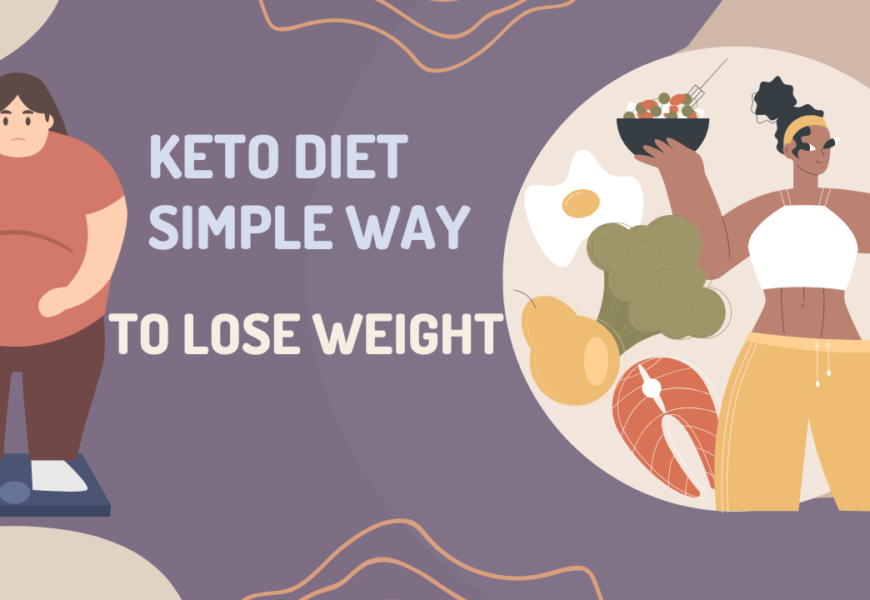Introduction to the Keto Diet
The ketogenic diet, or keto diet, has gained immense popularity in recent years as an effective way to lose weight and improve health. In this comprehensive guide, we’ll delve into the science behind the ketogenic diet, how it works for weight loss, its potential benefits and risks, as well as practical tips for getting started and staying on track.
Understanding the Keto Diet
What is the Keto Diet?
The keto diet is a high-fat, low-carbohydrate eating plan designed to induce a state of ketosis in the body. Ketosis occurs when the body switches from using glucose as its primary fuel source to burning fat for energy. This metabolic shift can lead to rapid weight loss and numerous health benefits.
How Does the Ketogenic Diet Work?
By drastically reducing carbohydrate intake and increasing fat consumption, the keto diet forces the body to enter a state of ketosis. In ketosis, the liver converts fats into ketones, which serve as an alternative fuel source for the brain and body. This process helps suppress appetite, stabilize blood sugar levels, and promote fat burning.

Benefits of the Keto Diet for Weight Loss
1. Rapid Weight Loss
The ketogenic diet is highly effective for shedding excess pounds, especially in the form of body fat. By limiting carbohydrate intake and promoting fat burning, many individuals experience significant weight loss within the first few weeks of starting the diet.
2. Appetite Suppression
One of the key benefits of the keto diet is its ability to naturally reduce hunger and cravings. High-fat foods are more satiating than carbohydrates, helping individuals feel fuller for longer periods and consume fewer calories overall.
3. Improved Metabolic Health
Research suggests that the keto diet can lead to improvements in various markers of metabolic health, including blood sugar levels, insulin sensitivity, and cholesterol levels. These changes may lower the risk of type 2 diabetes, heart disease, and other chronic conditions.
Read More: A Harmony of Comfort and Sustainability With Bamboo Mattresses
Potential Risks and Considerations
1. Keto Flu
Some individuals may experience flu-like symptoms, known as the “keto flu,” during the initial stages of the diet. These symptoms can include fatigue, headaches, nausea, and dizziness. However, they typically subside within a few days as the body adjusts to ketosis.
2. Nutrient Deficiencies
Because the keto diet restricts certain food groups, such as fruits, grains, and legumes, it may lead to nutrient deficiencies if not followed properly. It’s essential to prioritize nutrient-dense foods and consider supplementation to ensure adequate intake of vitamins and minerals.
3. Sustainability
While the keto diet can yield impressive weight loss results in the short term, some people may find it challenging to maintain over the long term. It requires careful planning and adherence to strict dietary guidelines, which may not be sustainable for everyone.
Getting Started with the Keto Diet
1. Calculate Your Macros
To achieve ketosis, it’s essential to calculate your macronutrient ratios. A typical keto diet consists of 70-75% fat, 20-25% protein, and 5-10% carbohydrates. There are online calculators and apps available to help you determine your ideal macronutrient intake.
2. Focus on Whole Foods
While it’s tempting to rely on processed keto-friendly products, such as bars and shakes, for convenience, it’s crucial to prioritize whole, nutrient-dense foods. Choose sources of healthy fats, such as avocados, nuts, seeds, and olive oil, along with plenty of leafy greens and non-starchy vegetables.
3. Stay Hydrated and Electrolyte Balanced
The keto diet can cause electrolyte imbalances due to increased water loss, so it’s essential to stay hydrated and replenish electrolytes regularly. Drink plenty of water and consider incorporating electrolyte-rich foods, such as leafy greens, nuts, and seeds, into your diet.
Frequently Asked Questions (FAQs)
1. Can I have cheat meals on the keto diet?
While occasional indulgences are acceptable, frequent cheat meals can disrupt ketosis and hinder weight loss progress. It’s best to limit cheat meals and focus on maintaining ketosis for optimal results.
2. How long does it take to see results on the keto diet?
Individual results may vary, but many people experience noticeable weight loss within the first few weeks of starting the ketodiet. Consistency and adherence to the diet’s guidelines are key to achieving and maintaining results.
3. Is the ketogenic diet safe for everyone?
While the ketogenic diet can be effective for weight loss and improving metabolic health, it may not be suitable for everyone, especially those with certain medical conditions or dietary restrictions. It’s essential to consult with a healthcare professional before starting any new diet plan.
Conclusion
The ketogenic diet offers a promising approach to weight loss and improved health for many individuals. By understanding the science behind ketosis, its potential benefits and risks, and practical tips for getting started, you can embark on a successful keto journey and achieve your wellness goals.








